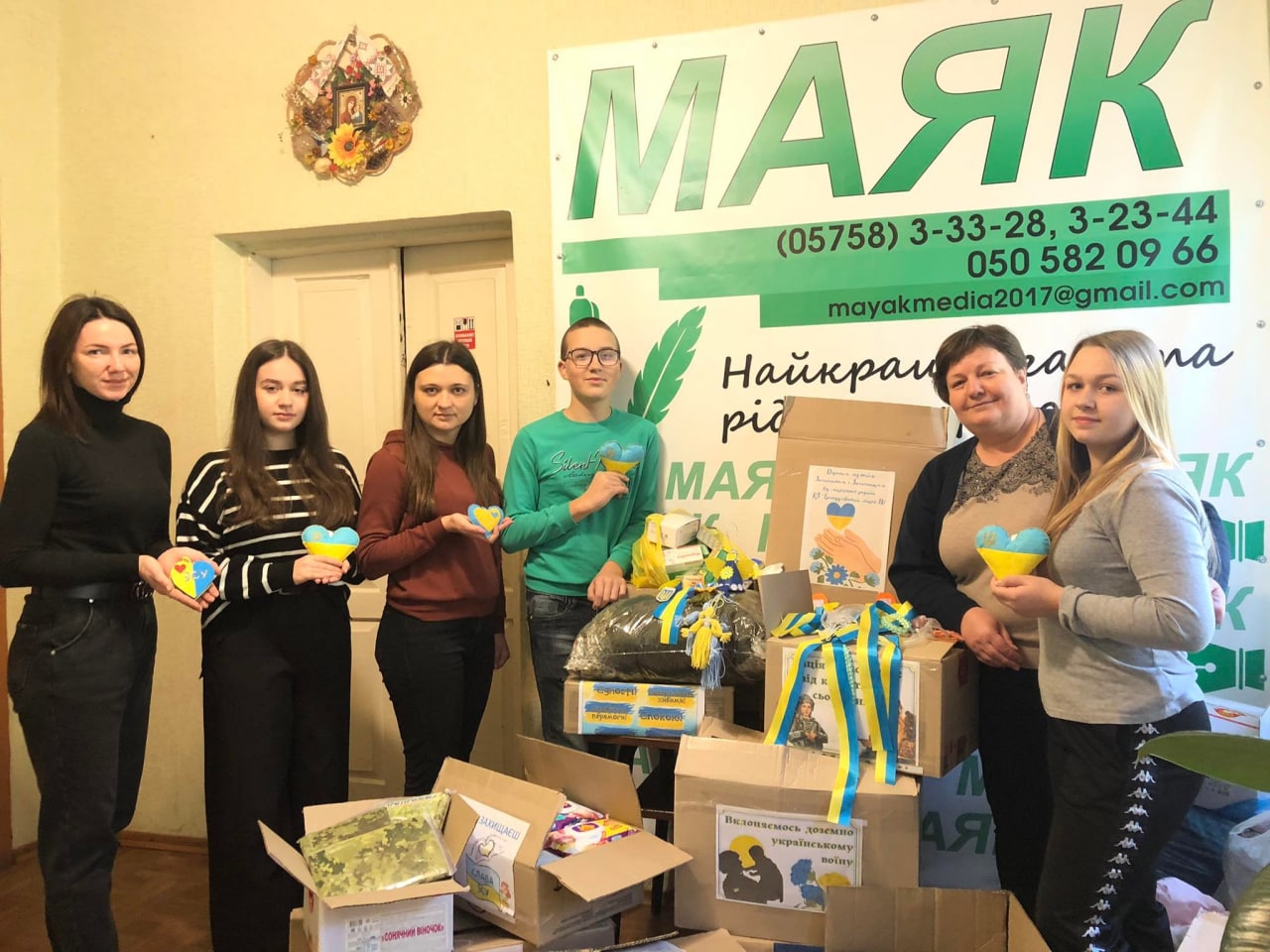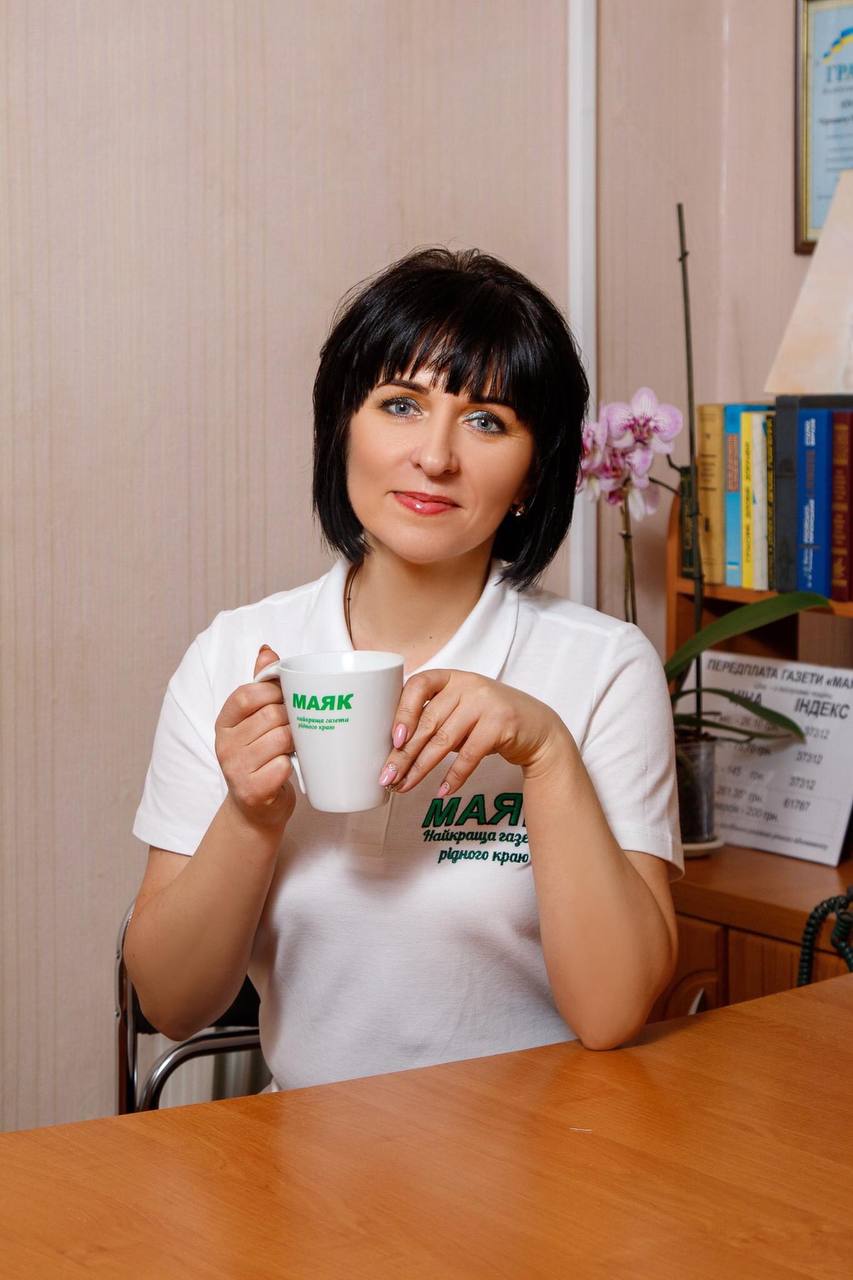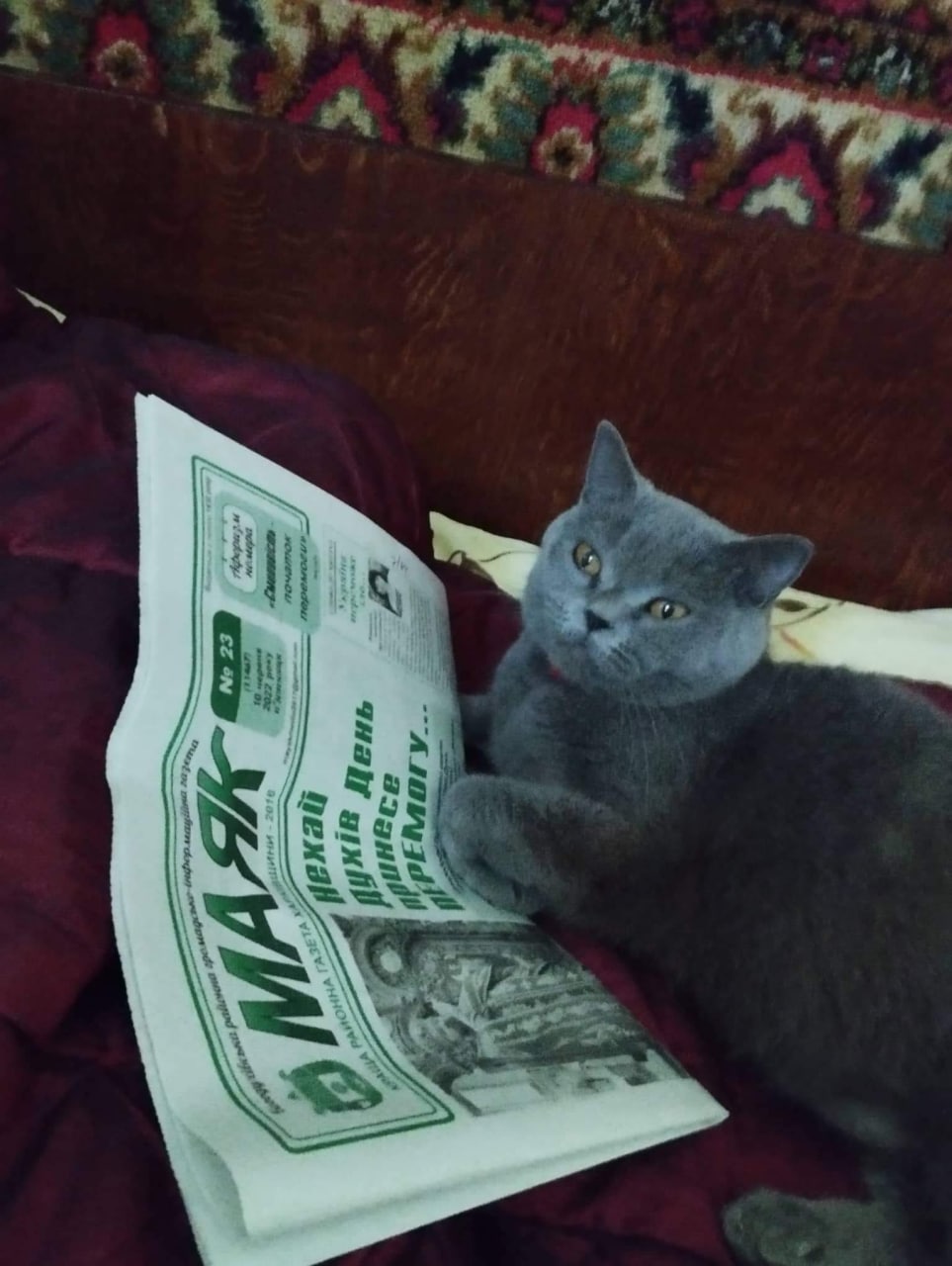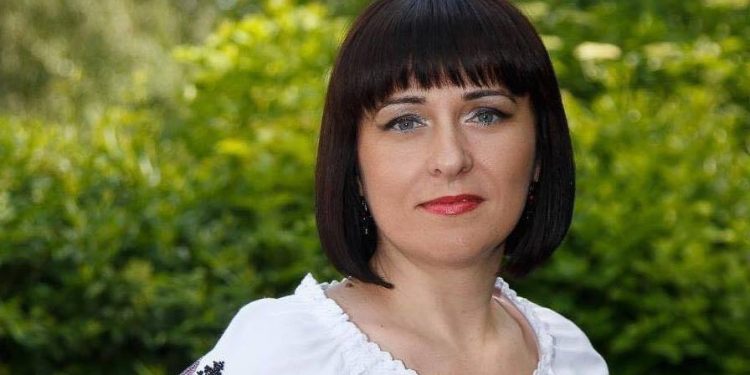On its 92nd birthday, the Bogodukhiv newspaper “Mayak” intended to mark the occasion with a special edition. Although it was prepared by February 23rd and set for printing the next day, the altered version only emerged in May. Yet, editor-in-chief Tetiana Luchynska ensured readers stayed informed. She created a frontline newspaper resembling a battle sheet. This turned “Mayak” into a self-published project for several months.
Battle Sheet
At the beginning of Russia’s full-scale invasion of Ukraine, the situation in Bogodukhiv was as intense as the entire front line. Despite the danger, challenging financial circumstances, and a shortage of human resources, on March 4th, Tetiana single-handedly released the first issue of the frontline newspaper. She kept the name unchanged – the familiar “Mayak.”
— The newspaper had a colorful design and was in the standard A4 paper size. I printed it at my sister’s place. The frontline newspaper had a limited number of copies – usually between 200 and 300- with the highest number being 400. This continued until Easter. I distributed it wherever I could, asking everyone to read and pass it on. My sister printed the newspaper for free on a regular printer. We had the paper funds. There was no need for more. I also distributed it for free— the journalist began her story.

During the day, Tetiana volunteered; in the evenings, she wrote news and articles for the battle sheet.
— The frontline newspaper provided official information, advice to locals and displaced people, and useful phone numbers. I conducted interviews with local government employees. I tried to tell as much as possible about volunteers and people in general. We also organized our ‘Mayak Auctions’ – this was a way to raise funds to support the Armed Forces. Our sections were always popular: ‘Your People, Bogodukhiv Region,’ ‘World of Achievements.’ I told stories about people who created paintings and made various wooden products. They started offering their works for the ‘Mayak Auction.’ Readers actively participated in this; a lot of money was raised for the Armed Forces this way,— Mrs. Luchynska said.
Revived “Mayak”
In May, the Bogodukhiv “Mayak” received a second chance. Ukrposhta [The national postal service of Ukraine] took on the distribution of the newspaper. The first issue of the revamped “Mayak” appeared on eight pages.

— I aimed to create the first issue as a blend of a frontline newspaper. Recognizing our 2,500 subscribers and the circulation ranging from 200 to 400 copies since the war began, I selected engaging topics, expanded them, and included content for our newspaper’s 92nd anniversary. This edition became a source of anticipation for subscribers, making them content. To ensure wider availability, I deliberately increased the print quantity. People were overjoyed to hold a genuine newspaper physically. It sparked inspiration and conveyed a much-needed sense of hope,— our interlocutor explained.
Now, “Mayak” is published on four pages. Tetiana works on the newspaper together with a layout artist. The publication has become significantly more optimistic.

— Previously, we focused on problems, but now I tell more about wonderful people living next to us, about volunteers, about those who managed to find themselves in this incredibly difficult time, about displaced people who managed to settle in a new place, start their lives anew. I talk about children – young patriots. Almost every piece ends with a wish for peace and victory. People pick up the district newspaper and read positive articles about people around them, those who believe in victory and inspire others. If there’s victory, we have everything. I look to the future optimistically: I think everything will be fine,— Tetiana Luchynska concluded.
This series, titled Executed Free Speech, is created as part of a project Drawing Ukrainian And International Audience’s Attention To Serious Violations Of Human Rights And Crimes Against Journalists And Mass Media By The Russian Federation, which is performed by the National Union of Journalists of Ukraine, with support from the Swedish non-profit organization Civil Rights Defenders.
JOURNALISTS ARE IMPORTANT. Stories of Life and Work in Conditions of War is a cycle of materials prepared by the team of the NUJU with the support of the Swedish human rights organization Civil Rights Defenders.
#CRD

 THE NATIONAL UNION OF
JOURNALISTS OF UKRAINE
THE NATIONAL UNION OF
JOURNALISTS OF UKRAINE
















Discussion about this post